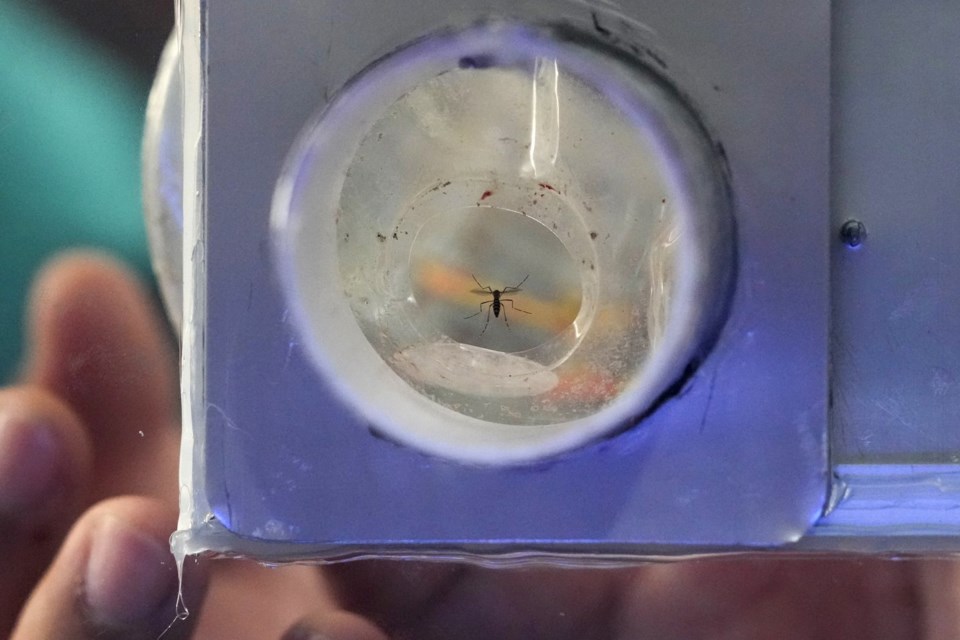MANILA, Philippines (AP) — A village in the densely populated Philippine capital region launched a battle against dengue Wednesday by offering a token bounty to residents for captured mosquitos — dead or alive.
The unusual strategy adopted by the Addition Hills village in Mandaluyong City reflects growing concern after the nearby city of Quezon declared an outbreak of the mosquito-borne illness over the weekend. Eight more areas reported an upsurge in cases of the potentially deadly viral infection.
At least 28,234 dengue cases have been recorded in the Philippines this year up to Feb. 1, a 40% increase compared to the same period last year, according to health department statistics. Quezon City declared a dengue outbreak Saturday after deaths this year reached 10 people, mostly children, out of 1,769 residents infected.
A urban village of more than 100,000 residents living in crowded neighborhoods and residential condominium towers, Addition Hills has done clean-ups, canal de-clogging and a hygiene campaign to combat dengue. But when cases spiked to 42 this year and two young students died, village leader Carlito Cernal decided to intensify the battle.
“There was an alarm,” Cernal told The Associated Press. “I found a way."
Residents will get a reward of one Philippines peso (just over 1 cent) for every five mosquitos or mosquito larva they turn in, Cernal said.
Critics warned the strategy could backfire if desperate people start breeding mosquitoes for the reward. Cernal said that was unlikely because the campaign would be terminated as soon as the uptick in cases eases.
As the campaign began, about a dozen mosquito hunters showed up at the village office. Miguel Labag, a 64-year-old scavenger, handed a jug with 45 dark mosquito larvas squirming in some water and received a reward of nine pesos (15 cents).
“This is a big help,” Labag said, smiling. “I can buy coffee.”
Dengue is a mosquito-borne viral infection found in tropical countries worldwide. It can cause joint pain, nausea, vomiting and rashes, and in severe cases can cause breathing problems, hemorrhaging and organ failure. While there is no specific treatment for the illness, medical care to maintain a person’s fluid levels is seen as critical.
Officials in another village in Quezon City were considering releasing swarms of frogs to eat mosquitoes.
Health Secretary Teodoro Herbosa said it’s crucial to clean up mosquito breeding sites, and for anyone who might be infected to seek immediate medical attention. Despite an increase in dengue infections, the Philippines has managed to maintain low mortality rates, he said.
Dengue cases surged unexpectedly ahead of the rainy season, which starts in June, likely because of intermittent downpours that have left stagnant pools of water where dengue-causing mosquitos can breed, Health Undersecretary Alberto Domingo said, adding that climate change was likely contributing to off-season downpours.
The Associated Press



